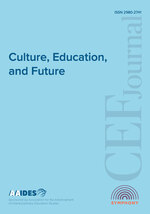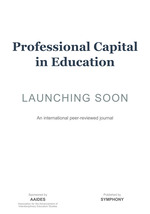© 2025
Aims & Scope
The aim and scope of Review of Comparative and International Education (RCIE), a peer-reviewed journal published by Symphony and sponsored by the Association for the Advancement of Interdisciplinary Education Studies (AAIDES), can be summarized as follows:
Aims
RCIE aims to advance understanding of educational systems, policies, and practices across global contexts through rigorous comparative and international analysis. The journal strives to bridge local educational experiences with global perspectives, examining how diverse cultural, social, and economic contexts shape educational phenomena. RCIE investigates contemporary challenges in international education, including digital transformation, migration impacts, and educational equity across different societies. Through this focus, the journal promotes cross-cultural dialogue between researchers, policymakers, and practitioners to inform evidence-based educational development and policy innovation worldwide.
Scope
The journal welcomes research across a broad spectrum of comparative and international education domains, including:
- Cross-national comparative studies of educational systems and policies
- Educational development in emerging economies and post-conflict societies
- Migration, refugee education, and displaced populations
- Digital transformation and technology integration across cultures
- International educational cooperation and development programs
- Globalization impacts on local educational practices
- Educational equity and access across diverse socio-economic contexts
- Cross-cultural pedagogical approaches and innovations
- International assessment and evaluation frameworks
- Education policy transfer and adaptation across borders
- Indigenous education systems and knowledge frameworks
- Multilingual education and language policy in international contexts
- Higher education internationalization and mobility
RCIE particularly encourages submissions that employ both explicitly comparative methodologies (cross-national studies) and implicitly comparative approaches (contextualized case studies contributing to broader frameworks). The journal embraces interdisciplinary perspectives, incorporating insights from education, sociology, anthropology, political science, economics, and international development studies.
The journal welcomes diverse research methodologies, including quantitative comparative analysis, qualitative cross-cultural studies, mixed-methods research, systematic reviews, and innovative research designs that advance understanding of educational phenomena across different global contexts and contribute to international educational development.







